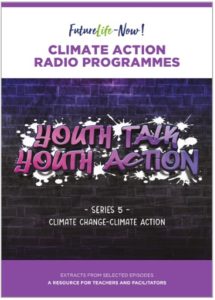Conceptualizing National Dialogues with Learning Institutions in Ecuador and Liberia
As part of its assistance to new partner countries for developing and implementing their national climate change learning strategies, UN CC:Learn discussed with the Governments of Liberia and Ecuador the organization of national dialogues focused on integrating climate change into education curricula. These dialogues aim to spotlight the critical role of education and training institutions in advancing climate change learning and foster reflection, exchange, and collaboration among a wide range of stakeholders from the education and climate sectors. They also provide a platform to showcase good practices and experiences from diverse countries.
The dialogues seek to embed climate change education at the heart of learning systems by initiating an inclusive and transformative conversation. A particular emphasis is placed on engaging stakeholders across all levels of education, especially those historically underrepresented in climate discussions. The dialogues are scheduled to begin in 2025, following the launch of each national strategy and catalysing their implementation.
Strengthening Youth Innovation in Collaboration with the Center for Climate and Sustainability Empowerment and the University of Ghana
The University of Ghana and the Center for Climate and Sustainability Empowerment, in collaboration with Ghana’s Environmental Protection Agency (EPA), the HBCU Green Fund, and the Omega Institute, and with support from UN CC:Learn, launched the new Young Climate Innovators Program (YCLIP) in 2024 in Accra, Ghana.
This initiative empowers university students to develop and implement innovative climate solutions. The first phase was open to around 200 students from the University of Ghana and focused on building climate literacy. The selected students benefited from a learning programme introducing and discussing key topics, such as the science of climate change, climate change communication, advocacy, activism, green economy, and gender and environment.
As part of this initial and qualifying phase, participants were invited to complete three UN CC:Learn courses and attend four webinar series. At the end of this phase, 25 students were selected to pursue more in-depth training.
This second phase, set to take place in 2025, will involve more hands-on experiences, including research work, an entrepreneurship boot camp, community engagement, and the development of innovative solutions in critical areas such as circular economy, biodiversity conservation, renewable energy, water, sanitation and health (WASH), and climate-smart agriculture.
Working with MIET Africa to Promote Climate Change Education in Southern Africa
Building on the collaboration with MIET Africa for the delivery of climate action radio programmes targeted at young people in Southern Africa, selected radio episodes were compiled as a resource for teachers and facilitators working with youth clubs or other groups of young people and made available in English, Shona, Bemba, Ndebele, and Nyanja.
The radio booklets and recorded episodes were used in MIET Africa’s FutureLife-Now! clubs and in classrooms. More than 23’000 youth were reached in Lesotho, Malawi, Zambia, and Zimbabwe in sessions using radio episodes or radio booklets (in and out of school)

Partnership with Learning Institutions for Climate Change Learning in the Kyrgyz Republic
Under the new UN CC:Learn-NDC Partnership supported project on “Strengthening Climate Action: Holistic Approach to Capacity Building and Public Awareness Raising for Low Carbon and Climate Resilient Development”, the Government of the Kyrgyz Republic and UNITAR/UN CC:Learn invited interested national learning institutions to submit proposals for the design of a series of awareness and capacity building programmes, aimed at four primary target audiences – government officials, women, youth, and the private sector, and the general public. This process is intended to ensure the development of relevant, needs-based, and contextualized learning interventions that could be integrated into the recurrent work of such institutions for long-term sustainability. The following learning interventions are planned:
- Development and integration of low-carbon and climate-resilient courses into academic degree programmes at Kyrgyz high education institutions
- Climate awareness and education through religious communities
- Integration of climate policy / NDC 3.0 into trainings for policy officials
UN CC:Learn Resources Empower GEMS Education Teachers
Over the past years, the GEMS Legacy School in Dubai has referred to UN CC:Learn courses to increase the knowledge of the teachers. As a result, GEMS Education, one of the largest private education providers in the world, is now using six selected courses to upskill all the teachers in all 46 GEMS schools, with 5,300 teachers expected to complete them by June 2025. The courses have been extended to GEMS Education twinning schools worldwide. In addition, students from grades 5 to 9 are learning through selected UN CC:Learn courses on food and electronic waste, with over 500 students having already completed them.
Joining Forces with Learning Institutions in Niger to Raise Awareness of the NDC
UNITAR/UN CC:Learn, and the NDC Partnership have joined forces with the Government of Niger to raise knowledge and awareness of the NDCs and leverage the collaboration and expertise of four national universities, such as:
- Universities of Niamey,
- Universities of Maradi,
- Universities of Tahoua, and
- Universities of Diffa
These institutions will contribute to developing information and communication materials on the NDC and a booklet for university students, which is expected to be available online on Agrhymet’s e-learning platform/channels.
In addition, each university will host an event on climate change, comprising a conference with around 200 students, researchers, and professors in the morning and a Youth Climate Dialogue in the afternoon in 2025.

 Go Back
Go Back